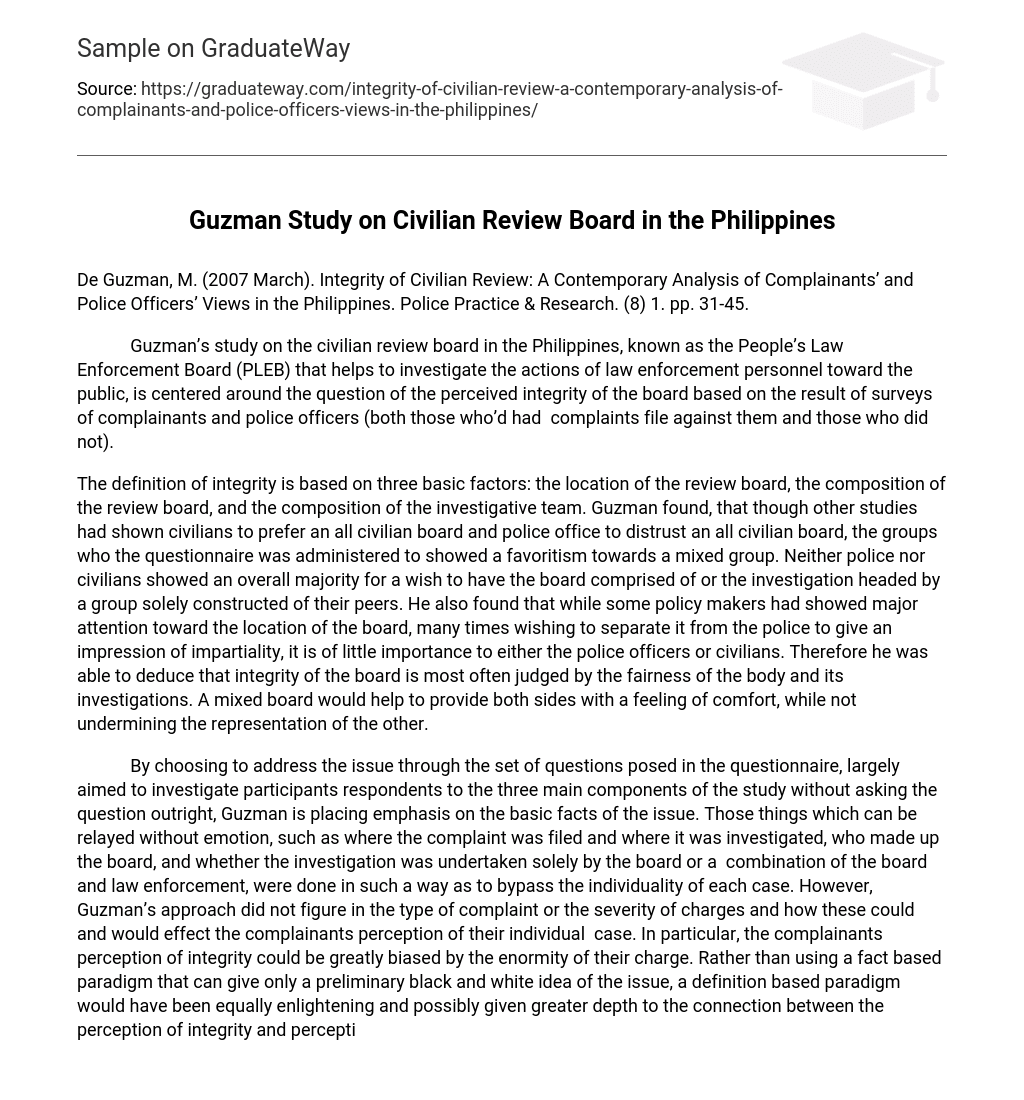De Guzman, M. (2007 March). Integrity of Civilian Review: A Contemporary Analysis of Complainants’ and Police Officers’ Views in the Philippines. Police Practice & Research. (8) 1. pp. 31-45.
Guzman’s study on the civilian review board in the Philippines, known as the People’s Law Enforcement Board (PLEB) that helps to investigate the actions of law enforcement personnel toward the public, is centered around the question of the perceived integrity of the board based on the result of surveys of complainants and police officers (both those who’d had complaints file against them and those who did not).
The definition of integrity is based on three basic factors: the location of the review board, the composition of the review board, and the composition of the investigative team. Guzman found, that though other studies had shown civilians to prefer an all civilian board and police office to distrust an all civilian board, the groups who the questionnaire was administered to showed a favoritism towards a mixed group. Neither police nor civilians showed an overall majority for a wish to have the board comprised of or the investigation headed by a group solely constructed of their peers. He also found that while some policy makers had showed major attention toward the location of the board, many times wishing to separate it from the police to give an impression of impartiality, it is of little importance to either the police officers or civilians. Therefore he was able to deduce that integrity of the board is most often judged by the fairness of the body and its investigations. A mixed board would help to provide both sides with a feeling of comfort, while not undermining the representation of the other.
By choosing to address the issue through the set of questions posed in the questionnaire, largely aimed to investigate participants respondents to the three main components of the study without asking the question outright, Guzman is placing emphasis on the basic facts of the issue. Those things which can be relayed without emotion, such as where the complaint was filed and where it was investigated, who made up the board, and whether the investigation was undertaken solely by the board or a combination of the board and law enforcement, were done in such a way as to bypass the individuality of each case. However, Guzman’s approach did not figure in the type of complaint or the severity of charges and how these could and would effect the complainants perception of their individual case. In particular, the complainants perception of integrity could be greatly biased by the enormity of their charge. Rather than using a fact based paradigm that can give only a preliminary black and white idea of the issue, a definition based paradigm would have been equally enlightening and possibly given greater depth to the connection between the perception of integrity and perception of large scale corruption or petty offense.





